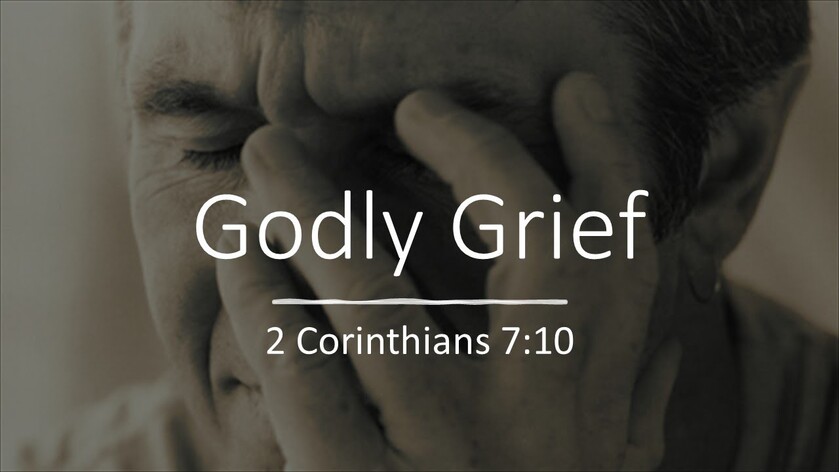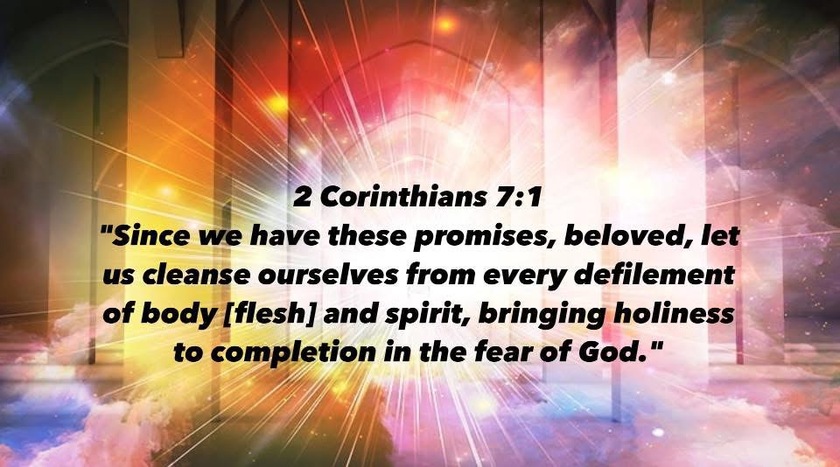Follow Me: Trusting God’s Path Through Sacrifice and Uncertainty
John 21:18-19
"Truly, truly, I say to you, when you were young, you used to dress yourself and walk wherever you wanted, but when you are old, you will stretch out your hands, and another will dress you and carry you where you do not want to go." (This he said to show by what kind of death he was to glorify God.) And after saying this he said to him, "Follow me."
As I was writing what follows, I was reminded of a favorite line in a favorite Broadway play, Godspell. The line I'm thinking about is part of the song, "All For The Best".
"Someone's got to be oppressed"
And whenever I feel like I'm out of control or out of sorts, I say that line. It's a comfort for me. I know where I come from, I know where I'm going, and I don't have any doubts about it. It is what it is, and someone's got to be oppressed.
It's a challenge and an invitation to trust and obey, even in the face of sacrifice. The Acts of Peter (a late 2nd century, apocryphal writing) claims Peter was crucified upside down in Rome under Emperor Nero around 64-68 AD. Sources like Tertullian and Origen, state that Peter was crucified in Rome, aligning with this tradition of his martyrdom. Nero’s persecution targeted Christians as scapegoats for the fire that engulfed Rome. Peter, as a prominent leader, was likely arrested, tried, and executed. His martyrdom was the culmination of his transformation. His life and death restoration highlights his arc from failure to faithfulness.
“Simon, son of John, do you love me?”
Yes indeed.
Like Stephen, James, and John the Baptist, Peter’s death joined the legacy of those who glorified God through sacrifice.
After Jesus’ crucifixion and resurrection, Peter and several of the disciples go back to Galilee and decide to fish, as described in John 21:1-3:
Simon Peter said to them,
‘I am going fishing.’ They said to him, ‘We will go with you.’
This return to fishing, followed by Jesus’ appearance and interaction with Peter, sets the stage for his restoration and the prophecy of his martyrdom. Though Jesus had appeared to the disciples, Peter may still carry overwhelming guilt, shame, or confusion about his role in God's plan. So, Peter reverts to what he knows best, fishing. Fishing represents a return to the familiar, a coping mechanism in a time of uncertainty. Peter was probably seeking stability by leaning on a personal purpose and known skill, even temporarily. This reflects our tendency to revert to old habits or comforts when faith feels uncertain.
Was it a step backwards or just a neutral pause allowing time for clarity to flow? It’s possible Peter was simply providing for himself and the others while awaiting Jesus’ next command. The ambiguity of Peter’s motives mirrors our own real-life faith journeys, where our actions can stem from mixed intentions. Sometimes we can seem to be rudderless in our ministry. Was Peter doubting his calling, or was he patiently waiting? Maybe both. This is the reality of life in Christ.
Importantly, Jesus meets Peter where he is. This fishing encounter mirrors his previous call to discipleship. And maybe that's just the redirection he needed. Jesus uses Peter’s familiar context, fishing, to reaffirm his calling, showing that even moments of uncertainty can become opportunities for divine encounter.
John 21:20-22
Peter turned and saw the disciple whom Jesus loved following them, the one who also had leaned back against him during the supper and had said, "Lord, who is it that is going to betray you?" When Peter saw him, he said to Jesus, "Lord, what about this man?" Jesus said to him, "If it is my will that he remain until I come, what is that to you? You follow me!"
Fresh from hearing about his future martyrdom, Peter is grappling with the weight of his calling. His question about John seems to suggest a mix of curiosity, concern, or comparison, consistent with his impulsive nature. Jesus' reply seems to suggest that Peter's motives were focused on comparison. Peter may be wondering if John will face a similar fate, seeking reassurance, or even feeling a tinge of envy if John’s path seems easier. This moment shows Peter’s vulnerability, still processing the cost of his calling. And let's be honest, just because your calling seems clearer and you're actively following the Lord’s will, this doesn't mean you're not going to continue to struggle with understanding and have concerns. His question about John suggests he’s still wrestling with his role, perhaps seeking to understand how his sacrifice fits within the broader plan. And of course, we're hearing this conversation because the writer of this gospel is John, whom Peter was speaking about.
The phrase "what is that to you?" cuts through Peter’s distraction, urging him to focus on his own calling rather than John’s. Whether John lives until Jesus’ return or follows a different path is irrelevant to Peter’s task. And this is a very important reality about all ministries. It is God who blesses a ministry. It's is His Spirit, His power, and His grace that determines everything to do with ministry. Jesus doesn’t answer Peter’s question about John’s fate, emphasizing that it’s irrelevant to Peter’s task. Peter has enough to be concerned about regarding his own future. He's facing having to trust God and surrender to the reality of relinquishing control, ("where you do not want to go." )
Jesus’ hypothetical statement, "If it is my will that he remain until I come," underscores God’s authority over each person’s path. This truth frees Peter to focus on his own obedience. The command "You follow me!" echoes John 21:19, tying this moment to Peter’s call to die for Christ. Imagine knowing you're going to die for your faith. Would knowing that color your faith? Would it darken it (with fear or doubt), or give it light (with purpose and hope)?
The human instinct to avoid suffering could lead to fear. Foreknowledge of martyrdom could amplify such fears. Peter may have also envied John, who it seemed to him wasn't destined for such a fate. And questions would arise, "why must I die if there is apparently another way?" Peter, restored by Jesus (John 21:15-17) and called to "feed my sheep," might wonder why his apostolic role culminates in death while John’s (per tradition) involves writing and teaching. In effect, Peter seems to suggest that he would have this cup pass him by, echoing another's struggle, Jesus in the Garden of Gethsemane. Jesus, fully aware of His impending crucifixion (Mark 8:31), faced the human instinct to avoid suffering. In Gethsemane, He prayed, "My Father, if it be possible, let this cup pass from me" (Matthew 26:39), expressing a desire for another way, much like Peter’s implied question, "Why must I die if there is apparently another way?"
John’s path seemed less costly, Peter’s question, "What about this man?", mirrors Jesus’ plea for an alternative, questioning why his sacrifice is necessary when another’s fate appears different. And this is the challenge every minister of the gospel faces. The questions: How will it go? The doubts: Why is it going the way it's going? The uncertainty: Am I in Christ's will, am I following? The confusion: Why lord?
Peter likely wonders about the specifics; when, how, and why his path diverges from John’s. Will my ministry bear fruit? Will I face opposition or suffering? Peter’s question reflects uncertainty about his place in God’s plan. And Jesus doesn't mince words.
"what is that to you? You follow me!"
There's a smart simplicity to this. It's direct and uncompromising. It sidesteps Peter’s curiosity about John’s fate, emphasizing God’s sovereignty, and refocuses Peter on his own obedience, regardless of the specifics. It's sidesteps our desire to constrain and control.
Jesus’ unminced words and Peter’s struggle offer encouragement for ministers and believers navigating uncertainty. Just follow Him. You want to glorify him? Follow Him.
Prayer:
Lord Jesus, thank You for Your unminced call to Peter: "Follow me!" When I, like Peter, wonder about the when, how, and why of my path, or fear suffering and question my place in Your plan, let Your Spirit guide me to trust Your sovereign will. Help me follow You without comparison, knowing Your grace sustains my ministry and glorifies You, even in uncertainty.
In Your Holy name Jesus, Amen.



















